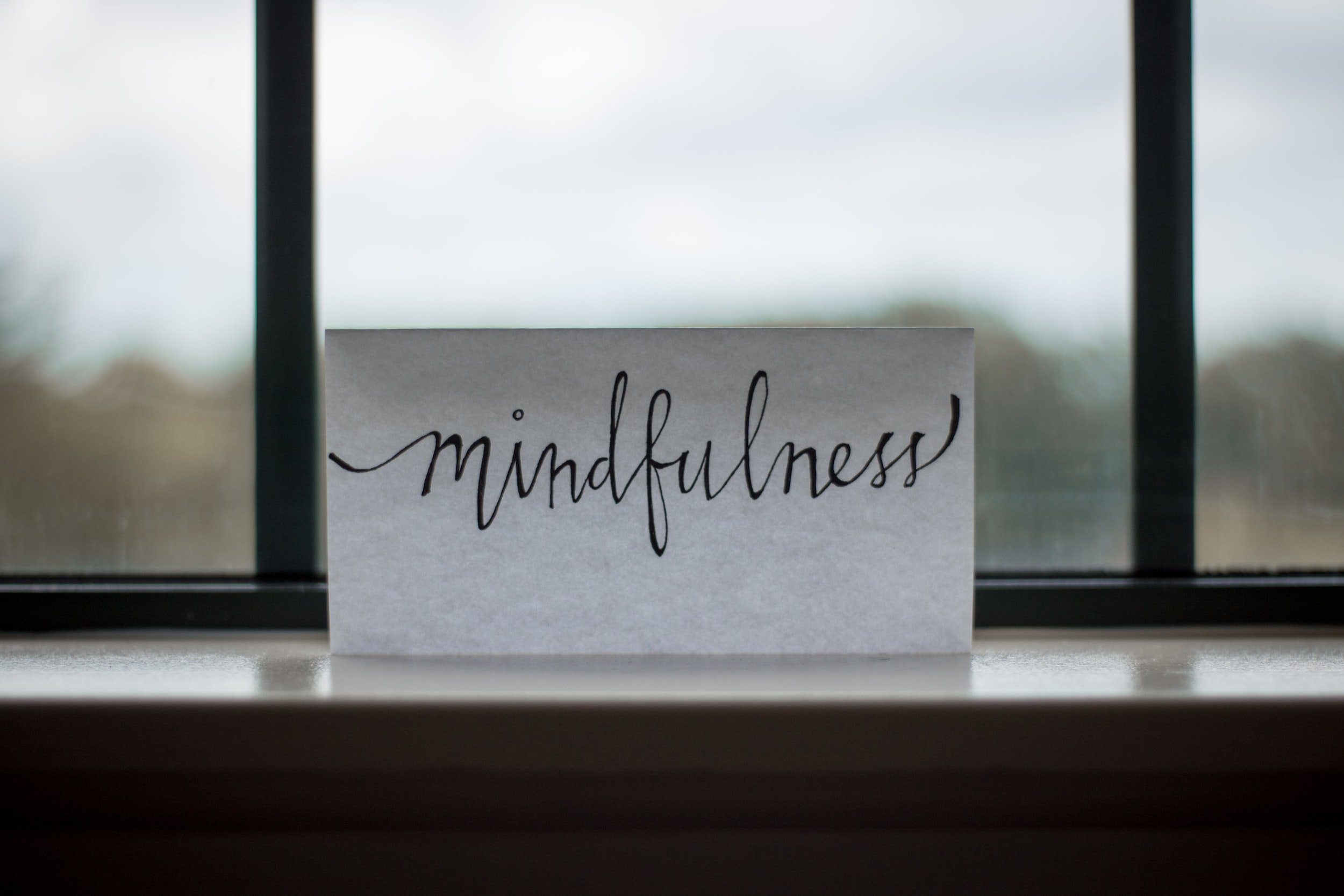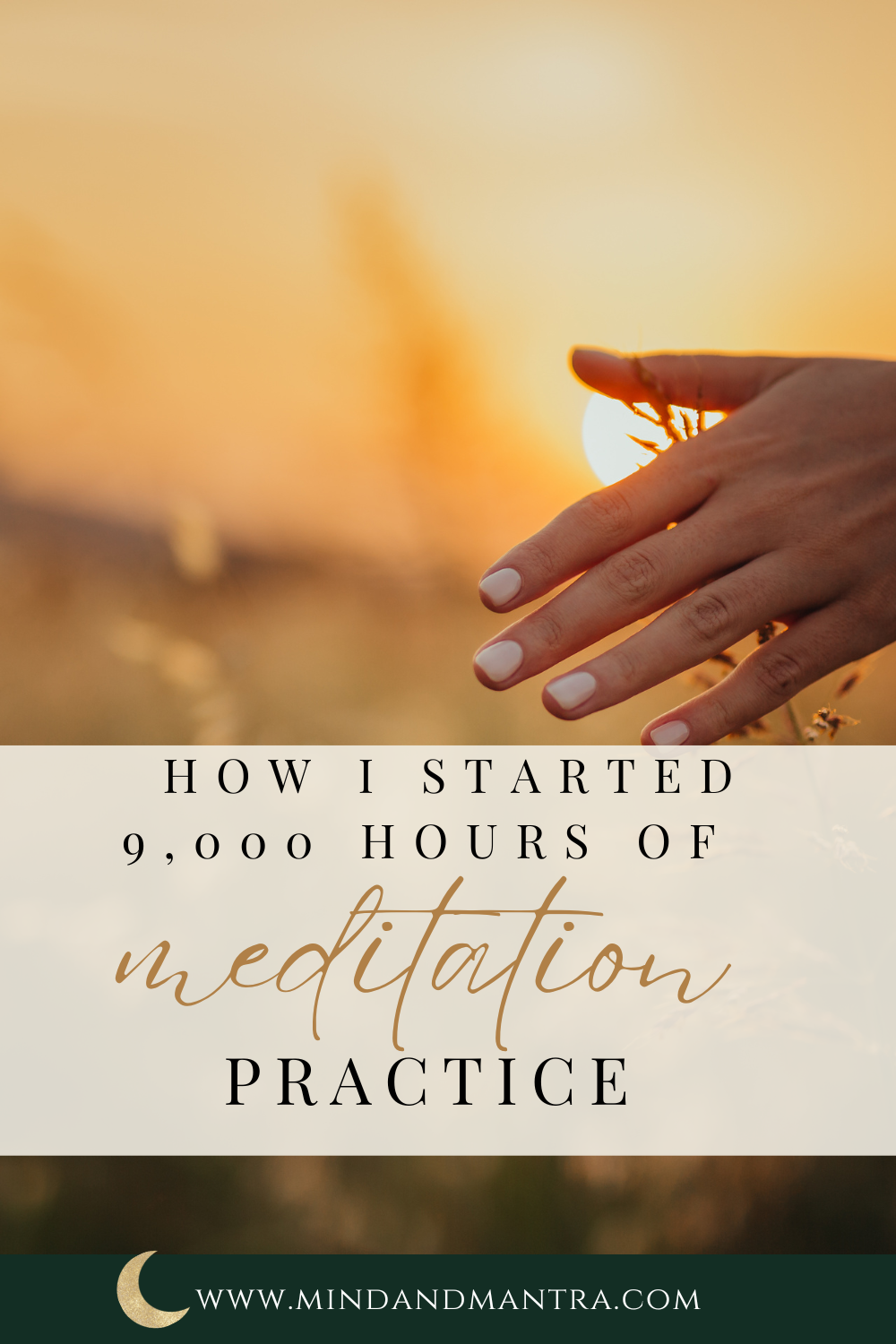Mindfulness 101
Mindfulness is the practice of being present and fully engaged in the present moment, without judgment or distraction. Decades ago I saw a famous book called Be Here Now by Ram Dass.
I was like what does that title mean….what a curious and simple statement….be here now?
Really, if you have lived your whole life without taking a second to purposefully calm the mind, you have no idea what being present is or living in the moment. This was me.
So if you are here, right now, there is no worry about the future and no remorse about the past. the present moment is absolutely liberating. What a contemplative idea.
And this is what mindfulness is, the power of now.
By incorporating mindfulness into daily activities, such as eating, walking, or even brushing one's teeth, you can enhance your overall sense of presence and awareness, making it easier to stay focused and centered throughout the day.
Of course, this is easier said than done, but if we make just a little effort in this area we will see the rewards.
Life gets busy, life gets stressful. There are jobs/careers, families, finances, food and shelter and soooooo many other things. It would be great to just take a Sabbatical when we need to unwind from it all, but that’s usually not possible for most of us.
So until we find that day in which our ocean isn’t as choppy, we need to use mindfulness and meditation to live our best lives.
Let’s dig deeper into mindfulness and how to use it.
Difference between Meditation and Mindfulness
Let us first approach the difference between mindfulness and meditation.
Unlike meditation, which typically involves sitting quietly and focusing on one's breath or a particular object, mindfulness can be practiced throughout the day, in any activity, simply by paying attention to one's thoughts, feelings, and surroundings.
While meditation is an essential component of many mindfulness practices, the two are not interchangeable.
Meditation involves intentionally setting aside time to cultivate mindfulness and focus, while mindfulness can be practiced anytime, anywhere, regardless of whether or not one is formally meditating.
Mindfulness can also be a powerful tool to bring more fruits to your meditation practice.
By cultivating mindfulness throughout the day, individuals can train their minds to stay focused and present, making it easier to settle into a meditative state when the time comes. Practicing mindfulness can help individuals become more aware of their thoughts and emotions, making it easier to identify and release distractions and negative patterns of thinking during meditation.
The Principles of Mindfulness
There are 4 main principles of mindfulness that help us understand more what mindfulness is, why it is important and how to do it.
The principles of mindfulness provide a framework for understanding what mindfulness is, why it is important, and how to practice it effectively. There are four main principles of mindfulness that are essential to cultivating a successful practice.
Embrace Quietude: The first principle of mindfulness is to embrace quietude or stillness. This doesn’t mean that things have to be absolutely quiet for you.
Maybe you have to watch the kids play, but you are going to remain silent and be ok with this level of quietude. There is also the level of no noise, no sounds, no phone in your hands and being ok with just sitting in silence for even a few minutes. Our senses are so overloaded all of the time, and this small break in the stream of life flow has immense benefits.
You can find a quiet place in your home, sit outside in nature, or even find a quiet spot in a nearby park. The idea is to create a space where you can focus your attention inward and tune out the distractions of the outside world.
But we are not going for perfection here, it doesn’t have to be perfectly quiet but we should turn off as many distractions as we can and just focus on the breath for a few minutes.
Pay Attention: The second principle of mindfulness is to pay attention. This means being fully present in the moment and focusing your attention on the task at hand.
Whether you are eating a meal, going for a walk, or simply sitting and breathing, pay attention to the present moment and avoid distractions.
Open Monitoring (Present Moment Awareness): The third principle of mindfulness is open monitoring or present moment awareness. This involves being aware of your thoughts, feelings, and sensations in the present moment without judgment.
It means acknowledging your thoughts and feelings as they arise, observing them with curiosity and compassion, and letting them pass without becoming attached or caught up in them.
But not just monitoring our thoughts, it means being present in all that we are doing.
4. Acceptance (Non-Judgment): The fourth principle of mindfulness is acceptance or non-judgment. This means accepting yourself and your experiences without judgment, criticism, or resistance. It means being kind and compassionate towards yourself, even in difficult situations.
By embracing these principles of mindfulness, individuals can cultivate a greater sense of self-awareness, emotional regulation, and overall well-being. Practicing mindfulness regularly can also help reduce stress and anxiety, improve focus and concentration, and enhance relationships with others.
As a mindfulness coach, I can help you understand these principles and incorporate them into your daily life.
Through personalized instruction and one-on-one attention, I can help you cultivate a mindfulness practice that works for you and supports your goals for personal growth and transformation.
How to Incorporate Mindfulness into your Daily Life
To help incorporate mindfulness into daily life, here are seven simple ways to practice mindfulness throughout the day:
Mindful breathing: Take a few minutes each day to focus on your breath. Close your eyes and bring your attention to the sensation of air flowing in and out of your nostrils. If your mind begins to wander, gently bring your focus back to your breath. This practice can help reduce stress, increase focus and concentration, and promote a sense of calm.
Mindful eating: Next time you eat a meal, take the time to savor each bite. Pay attention to the colors, textures, and flavors of your food. Take time to chew slowly and be fully present with your meal. This can help you develop a healthier relationship with food, reduce overeating, and promote mindful awareness.
Mindful movement: Incorporate mindfulness into your exercise routine by focusing on the sensations in your body as you move. Whether you are walking, stretching, or doing yoga, bring your attention to the present moment and the movements you are making. This can help you reduce stress, increase body awareness, and promote a sense of well-being.
Mindful listening: Next time you are in a conversation with someone, try to be fully present and listen actively. This means giving your full attention to the person speaking, rather than thinking about what you will say next. This practice can help improve relationships, increase empathy and understanding, and promote a sense of connection.
Mindful breaks: Take a few moments throughout your day to pause and check in with yourself. Close your eyes and take a few deep breaths. Notice any sensations in your body and any thoughts or emotions that may be present. This practice can help you reduce stress, increase self-awareness, and improve overall well-being.
Take a mindfulness walk: Go for a walk and focus on the sensations of your feet hitting the ground, the feel of the air on your skin, and the sights and sounds around you.
Practice body scan meditation: Lie down and slowly scan through your body, noticing any areas of tension or discomfort.
But How Can Mindfulness Enhance One's Meditation Practice?
Mindfulness and meditation are often mentioned together as two practices that can have a powerful impact on one's mental and physical health.
But what is the relationship between the two?
By cultivating mindfulness in our daily lives, we become more aware of our thoughts and emotions. This increased self-awareness can then be applied to our meditation practice, helping us to notice when our minds begin to wander and to gently guide our attention back to the present moment.
With practice, this can lead to a deeper sense of focus and concentration during meditation.
Furthermore, different types of meditation practices can also benefit from the application of mindfulness. For example, in mindfulness meditation, the focus is on observing one's thoughts and feelings without judgment.
In loving-kindness meditation, the focus is on cultivating positive emotions towards oneself and others. By applying mindfulness to these practices, individuals can deepen their experience and potentially reap even greater benefits from their meditation practice.
The Mind and Mindfulness
But what does all of this mean? What are we trying to get at? It’s the Mind!
Mindfulness! Meditation, it all has to do with the mind…..so what is the mind??
The mind is a complex and multifaceted aspect of our being that encompasses our thoughts, emotions, beliefs, and experiences. It is the center of our consciousness and our perception of reality.
When we talk about mindfulness, we are referring to the practice of paying attention to our thoughts, feelings, and bodily sensations in a non-judgmental way. This heightened awareness allows us to observe our thoughts and emotions as they arise, without getting caught up in them or being overwhelmed by them.
In a sense, mindfulness is about training the mind to be more present and aware of the present moment. By doing so, we can develop a greater sense of clarity and focus, which can help us navigate our daily lives with more ease and grace.
With regular practice, we can learn to become more aware of our thoughts and feelings and to respond to them in a more intentional and mindful way. This can lead to increased emotional regulation, greater self-awareness, and a deeper sense of peace and well-being.
Benefits of Using Mindfulness in our Daily Lives
Mindfulness is a powerful tool for promoting mental and physical well-being. By being fully present in the moment, individuals can cultivate a greater sense of self-awareness and emotional regulation, which can have a profound impact on their overall quality of life.
Research has shown that regular mindfulness practice can reduce stress and anxiety, improve sleep, and even lower blood pressure.
Furthermore, practicing mindfulness can help individuals to become more aware of their thoughts and emotions, allowing them to approach difficult situations with greater clarity and perspective. By learning to observe their thoughts and feelings without judgment, individuals can develop a greater sense of control over their reactions and behaviors.
Incorporating mindfulness into one's daily routine can be as simple as taking a few minutes to focus on the breath or engaging in mindful movement, such as yoga or walking meditation.
By making a habit of mindfulness practice, you can begin to experience the benefits of increased self-awareness, emotional regulation, and overall well-being.
Working with a Mindfulness Coach
As a meditation and mindfulness coach, my focus is on creating a transformative experience for my clients. I understand that everyone has different needs, preferences, and goals when it comes to mindfulness, which is why I offer personalized instruction to help individuals cultivate a mindfulness practice that works for them.
I am committed to working closely with each of my clients, providing them with the support and guidance they need to develop a consistent mindfulness practice. Whether you are a beginner or have been practicing mindfulness for years, I can help you deepen your practice and achieve your goals.
As your coach, I can offer you customized guidance, practical tools, and techniques to help you overcome any challenges or obstacles you may encounter along the way. I will work with you to help you cultivate a greater sense of self-awareness, emotional regulation, and overall well-being.
We will combine the power of meditation and mindfulness and watch the transformation in your life occur!
If you are interested in learning more about how I can help you on your mindfulness journey, I encourage you to book a discovery call with me today. Together, we can explore your needs and goals and create a personalized plan to help you achieve them.
In conclusion, mindfulness is a powerful practice that can greatly enhance one's meditation practice and overall well-being. By increasing self-awareness and emotional regulation, mindfulness can help individuals manage stress and anxiety, and cultivate greater peace and balance in their lives.
Again, it is the simple everyday practices that count. Simple practices like mindful breathing, eating, and movement can make a big difference in mental and physical health. By making a commitment to practice mindfulness regularly, individuals can experience profound benefits in all areas of their lives.
If you're interested in learning more about mindfulness and meditation, consider reaching out for personalized guidance and support. As a meditation and mindfulness coach, I offer personalized instruction and one-on-one attention to help individuals cultivate a mindfulness practice that works for them. Click here to book a call.
Looking for more resources? Visit my most read blogs and get tons of good info and tips
Much Love! Much Light!
I’m cheering you on in your spiritual quest!
Heather Hathaway, M.Ed.








